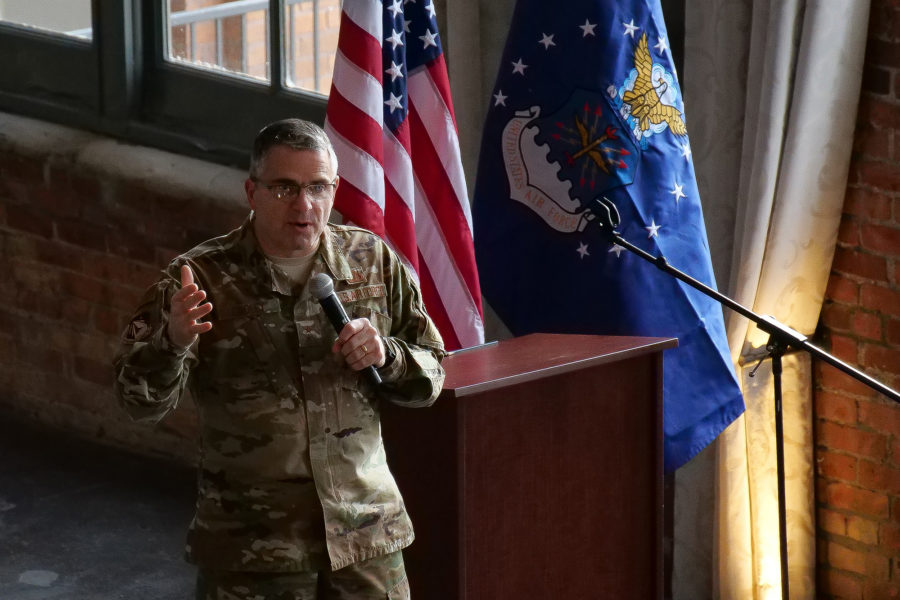Maj. Gen. William T. Cooley will be reprimanded and forced to forfeit $10,910 a month in pay for five months after being convicted of abusive sexual contact for forcibly kissing his sister-in-law in 2018.
Col. Christina M. Jimenez, the senior military judge in the case and the chief circuit military judge, provided the sentence, which came three days after Cooley’s historic court-martial concluded. He is the first Air Force general officer to be tried and convicted in a military trial.
Cooley was charged with one count of sexual assault under Article 120 of the Uniform Code of Military Justice, with three specifications. He waved his right to a jury trial, and Jimenez found him guilty of one specification of abusive sexual contact for forcibly kissing the victim, who agreed to let the media identify her relationship to Cooley without naming her. He was found not guilty of two other specifications related to allegedly forcing the victim to touch him and for groping her.
Although Cooley will now lose nearly $55,000 in pay, with the conviction he faced a maximum sentence of dismissal from the service, forfeiture of all pay and allowances, and seven years’ confinement. Air Force lawyers representing the victim wanted him to be dismissed from the service without pay or retirement benefits, and a reduction in rank, according to media covering the trial.
Cooley has served as a special assistant to Air Force Materiel Command boss Gen. Arnold W. Bunch Jr. since Bunch removed him from his position as head of the Air Force Research Laboratory in January 2020. Bunch, as the general court-martial convening authority, will now author the “formal admonishment, which … likely will document Cooley’s conviction and departure from Air Force standards and core values, as well as articulate Gen. Bunch’s expectations of behavior by Maj. Gen. Cooley moving forward,” said AFMC spokesperson Derek Kaufman.
Based on the abusive sexual contact conviction, Kaufman said Cooley is “subject to administrative discharge,” though he may still request to retire.
“Whether he requests to retire is a personal choice,” Kaufman said. “An officer is not automatically entitled to retire at the highest grade held. Instead, an officer is retired in the highest grade in which the officer served satisfactorily as determined by the Secretary of the Air Force.”
In an unsworn statement offered before the sentencing, Cooley apologized to his sister-in-law, wife, family, and members of the Air Force.
“I can honestly say I have come out a better human being than I was in 2018 … I will work for the rest of my life to be a better person than the one who was portrayed in this trial,” he said, according to the Dayton Daily News.
He also asked the judge to consider his wife. “Whatever I deserve, she did not deserve this, and I pray to God that she will not be left with nothing.”
Lt. Col. Matthew Neil, the government lead trial counsel, also presented an unsworn statement on behalf of the victim and her family.
“If this result influenced just one survivor to know that his or her attacker’s rank or status would not prevent them from being held accountable, that is a win for the United States and the military justice system,” said Neil after the sentence was delivered, according to a USAF release.
Editor’s Note: This story was updated at 4:28 p.m. on April 26 with additional information from AFMC on what happens to Cooley after sentencing.
